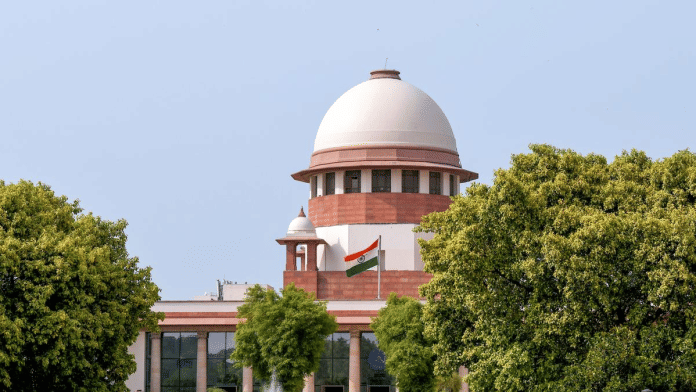New Delhi: The present Collegium headed by Chief Justice of India (CJI) BR Gavai has recently approved names of lawyers and judicial officers for High Court appointments, even as they were rejected by the previous Collegium under then CJI Sanjiv Khanna, ThePrint has learnt.
Supreme Court sources, speaking on condition of anonymity, told ThePrint that the Collegium reconsidered the names afresh after the government returned the files to it, wanting its members to re-assess the candidates. The government—according to the sources—felt that the Collegium had skipped relevant information favoring the candidate.
These appointments, cleared after Justice Gavai took over the CJI’s office on 14 May, were for three High Courts – Rajasthan, Allahabad and Delhi.
“Since the Memorandum of Procedure (MoP) allows the government to seek reconsideration of the Collegium’s decision, the members thought it would be appropriate to have another look at the proposals,” one of the sources said.
The source added that the Collegium, upon re-scrutiny, found the rejected candidates deserving of appointment to the high courts.
According to the source, in the case of Rajasthan, the Centre wanted the Collegium to reconsider four lawyers for elevation to the high court. However, the Collegium gave its nod to only three. Similarly, the files returned to the Collegium for Delhi were of four judicial officers, of which the Collegium has approved only three. “It is not that the Collegium has mechanically reviewed the files returned by the government”.
The proposals cleared after reconsideration include four appointments for Rajasthan, three for Allahabad and three for Delhi. The proposals for both Delhi and Allahabad concern only judicial officers, whereas for Rajasthan, three are lawyers and one is a judicial officer.
CJI Khanna’s Collegium had made recommendations for Rajasthan in two parts. While the resolution for judicial officers was issued in December 2024, for the lawyers it was done in March 2025. For Delhi, his Collegium selected judicial officers in a meeting held in February and for Allahabad the decision was made in April.
According to the MoP – a rulebook for appointments to higher judiciary – the CJI-led top court Collegium, also comprising two senior-most judges, is the final authority in hiring for High Courts. This body takes a call on the appointments after it receives the proposals from the Centre.
As the MoP mandates, the Centre, on receiving the recommendations from the Supreme Court Collegium, can refer the files back to it in case it wants the appointment body to have a relook at a specific recommendation. However, in case the Collegium reiterates its earlier decision, then the Centre is bound to accept it. Notably, the MoP does not prescribe a timeline for the Centre to notify the proposals approved by the Collegium.
At present justices Surya Kant and Vikram Nath are the other two members of the three-member Collegium. Importantly, CJI Gavai and Justice Surya Kant were part of the Collegium under CJI Khanna that had rejected the names returned by the government for reconsideration.
A second source told ThePrint that when the government returned the files to the Collegium it provided fresh inputs to clarify the objections that were put against the names of advocates and judicial officers who were not treated as suitable to occupy the post of a High Court judge.
Giving an example of a judicial officer who was cleared after reconsideration, the source said that a judicial officer candidate’s name was rejected due to various objections. However, after the govt returned the file for reconsideration—disapproving of the objections—the Collegium took another interview and found the candidate suitable.
The source added that all the candidates who were cleared after reconsideration were called for the interview process, even though the last Collegium had interviewed them. “This was done despite the fact that two members in the present Collegium had met and interacted with them when they appeared before the last Collegium. Since this exercise was a fresh assessment, the members wanted to meet them again,” said the source.
(Edited by Vidhi Bhutra)
Also read: CJI’s involvement in selection of CBI director is a safeguard, not a subversion







The collegium system of Judges appointment is an eye sore for BJP. They are not able to saffron ise the judiciary fast. The MOP allows the government to seek re consideration. But there is no time limit for appointment prescribed. The BJP waits and appoints selectively. They are more particular about the seniority. They don’t want someone who does not listen to them becoming CJHC or CJI. Brazen misuse of power.